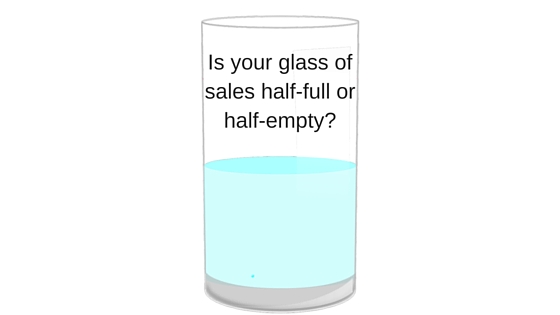[powerpress] If I could give you one action item that would stop half of your sales from slipping through your fingers, would I have your attention? That’s what I thought. I know, you are so close. You have been working hard, listening, asking questions, but sometimes you feel like your sales are just out of your grasp. So what the heck is going on? One thing to look into would be that perhaps a couple of simple accidental phrases that have snuck into your conversations.
If I could give you one action item that would stop half of your sales from slipping through your fingers, would I have your attention? That’s what I thought. I know, you are so close. You have been working hard, listening, asking questions, but sometimes you feel like your sales are just out of your grasp. So what the heck is going on? One thing to look into would be that perhaps a couple of simple accidental phrases that have snuck into your conversations.
They are subtle little boogers, these phrases. The hardest part about these is that you don’t even realize you are doing them! And there is only one way to figure out if this is hurting you, and that is to record yourself practicing. Ick, I know. I’m sure you have heard that old adage that practice makes perfect. It’s not true. Perfect practice makes perfect. If you are practicing the same wrong stuff over and over again, you will develop bad habits that will make your sales spiral despite your best intentions. Let’s go over these three phrases.
- “Interested.”
This shows up in questions that you ask like, “Would you be interested in hearing about…” or “why are you interested in…. “Interested” is a dipping the toe in the water word. It sets the stage for lack of commitment. There are a couple of reasons that you might be using this word. First, you have heard others use it, so you use it. You don’t even realize it’s a bad word. Second, you are likely not to get rejected at first when you use this word. Since it signifies non-commitment, there is no reason for a customer to give a negative response. If you ask “would you be interested in hearing about…” and they say no, it is easy for you to justify that well, they just weren’t interested. The big problem here is that you haven’t had a chance to build any value yet. How could they be interested, if they don’t know the value? You will have people turn away your proposed solution right off the bat, just because they don’t have a good idea of what is going on.
The most dangerous part of this word comes at the end, when it’s time to buy. You can do everything perfectly after asking “why are you interested in…” Let’s say you learn that answer, and tie all of the benefits of your product back to that answer. You have a confident, disciplined buying process. And then your customer responds with, “I just need to think about it” or “I’m just looking around.” The problem is that they never in their minds committed because they were “just interested.”
If, then statements work a lot better. Something like, “if I could show you a way to _____, would you be willing to hear me out?” I love using the word “important” instead, especially when it comes to learning goals. Let me give an example of the difference. Answer these questions in your head, and watch the difference. “Why are you interested in getting healthier?” You might say, “I know I should, look better.” You get surface answers. If you ask “Why is getting healthier important to you?” you will answer a deeper response just from the get go. Now when you explain the benefits of your product and go to close, there is more commitment from the beginning and it’s in their words.
2. “A little bit”
I hear this phrase a lot in role-plays and recordings when my clients are desperately trying to get better at learning about goals and needs. So my client will be pumped about asking about goals, and then he or she will get frustrated because the potential customers aren’t opening up. They are giving one word answers, or short phrases, and they aren’t connecting. My client will usually come back frustrated at how they were “hard customers” until we do a quick role-play. Often I’ll notice that my client has changed the question from “tell me about your health goals” to “tell me a little bit about your health goals.” The customer is following the sales rep’s lead perfectly by just giving a “little bit.” Oops.
Just stop it. Stop adding “little bit” and you will be good to go.
3. “maybe, possibly”
This phrase shows up most during times where you are about to ask for something. “Would you maybe like to set up a time?” Or, “Would you possibly want to buy that kit?” These words invite the customers to respond in kind, with “maybe.” Again, this is something that you need to simply eliminate through practice.
There is another phrase that you might be thinking of as we go over these. “Um.” Um gets a lot of attention. However, in the 15 years I have coached people, I have not observed sales being lost to this one. Yes, it can be distracting, but it doesn’t lead customers to a different outcome like the ones I reviewed today. So if you are worried about this one, don’t be. It’s not likely killing your sales.
I understand psychologically I can’t tell you, “don’t say this.” The mind doesn’t process the “don’t” and now you will say these things more. Kind of like how you are supposed to say “walk slowly” instead of “dont’ run” when yelling at your kids by the pool. You can’t even find replacements for a few of these. Therefore, there is only one way to fix this. It’s to record yourself practicing to find out if you are using these words. Salespeople are notorious for listening to training, taking notes, and then going to play the game. Could you imagine if any other professional operated this way? Even your seven-year-old kid knows that he needs to go to the batting cages if he is going to do well in the game. I will leave you with this major challenge. Do a practice appointment for someone you are comfortable with, and record it. They don’t need to give you any feedback unless they are selling more than you are. Watch it, and make sure these phrases have been eliminated from your vocabulary. If you hear them in the recording, the only way to get them out is to repeat the correct phrases until your muscle memory has eliminated them. A bit of warning, don’t try to eliminate these on the fly, when you are with your customers. You will become mental and unconfident. I do not want you thinking about me, or this podcast in the middle of a sales conversation. The place to hone your skills on effective language are at home. So that’s my challenge for you this week. You have a couple of choices, you can do 2x the work and have 2x the frustration, or make the work you do better. To me, it seems like a no brainer to me.
Thanks for taking the time to listen in today. Head on over to emergesalestraining.com for additional skill development and techniques, and be sure to share this podcast with a colleague who is also in their first year or two in direct sales. I look forward to chatting with you next week.
Tasha
